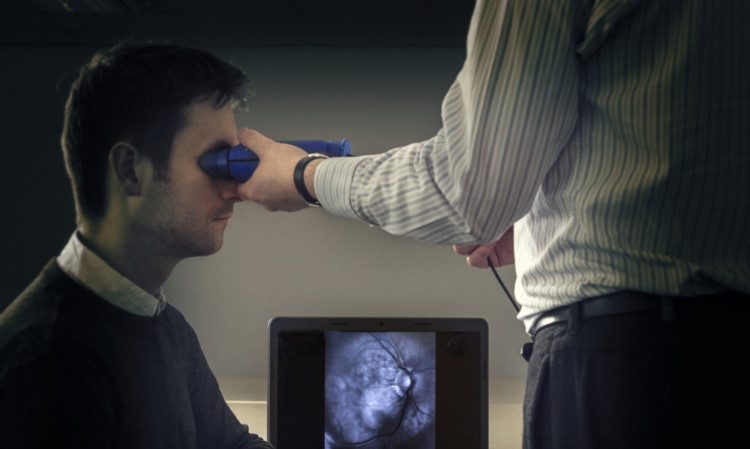Millions diabetes sufferers worldwide could have their sight saved thanks to a portable eye-scanning camera being developed in Fife.
The handheld device, built by Rosyth company Epipole, is the first portable and affordable camera capable of diagnosing diabetic retinopathy, a condition responsible for two million cases of preventable blindness worldwide.
Now Dr Craig Robertson, 45, the managing director and founder of Epipole, has signed a £400,000 investment deal which will enable his firm to develop a single working prototype into a commercial reality.
As well as being a landmark for Epipole, it is also the first major deal for newly launched Scottish angel syndicate Lancaster Capital.
Dr Robertson, who has patented his camera, believes it will revolutionise detection of the condition, particularly in India and other developing nations.
He said: “In the UK we are lucky as we have gold standard healthcare, but in less developed countries this is a huge issue as it is one of the nastiest parts of the diabetes condition and leads to blindness that could easily be prevented through early intervention.
“We are now on target to go from an idea to reality in three years, which is exceptionally fast and wouldn’t have happened without the investment from Lancaster Capital.”
The founder members of Lancaster Capital privately invested the original £55,000 Dr Robertson needed to set up Epipole and make his prototype.
The syndicate opened to new members in February and 10 of those contributed towards the £400,000 needed to take the camera to market.
Lancaster Capital is growing fast but it is still keen to add more high net worth and experienced investors.
Its chairman Hector Cameron said the syndicate had been established specifically to invest in exciting new technologies that are likely to result in products that make a positive difference to lives.
The Epipole product is a high-resolution camera that spots tell-tale signs such as blood clots at the back of the eye.
Dr Robertson came up with the original idea after working in the field of retinal imaging. He realised the only cameras available for this type of scanning were impractical in terms of portability, assumed generic use and cost, with individual units costing upwards of £40,000.
He has patented his handheld camera and software, likely to cost less than £1,000. It will also connect to laptops via USB, allowing doctors to beam results from remote, rural communities to anywhere in the world.
“Our plan is to first target the Indian market where there has been an alarming increase in the level of diagnosed diabetes within the population, with approximately 60 million diagnosed and who knows how many more undiagnosed?” Dr Robertson said.
“India has a population of approximately one billion. There are also around 660,000 villages that healthcare workers need to get round. This means they need a portable device and, of course, it needs to be easy to use and affordable.”
